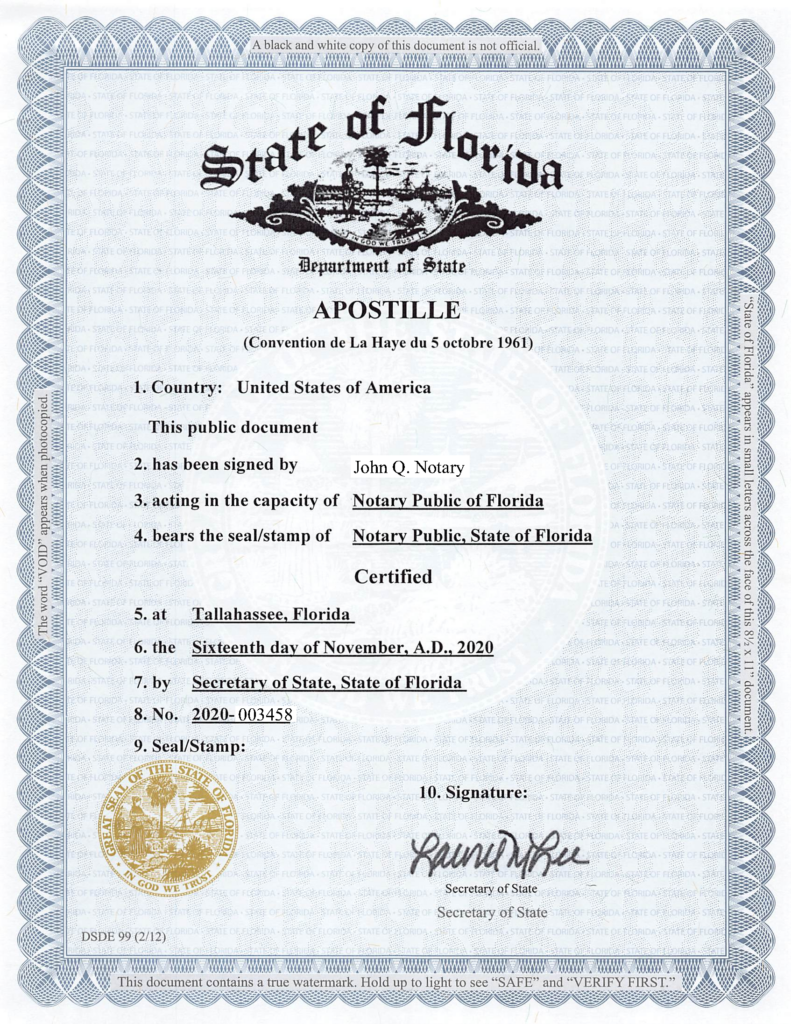Apostille Houston Service-- Qualified Record Verification for All Demands
Apostille Houston Service-- Qualified Record Verification for All Demands
Blog Article
Comprehending the Apostille Refine: A Comprehensive Guide to International Document Authentication
Browsing the intricate landscape of worldwide paper verification can be discouraging without a clear understanding of the apostille process. This overview diligently outlines the essential steps, from recognizing which documents require accreditation to sending them for confirmation by the Competent Authority. Grasping the significance of an apostille and acknowledging prospective challenges, such as incomplete submissions and language barriers, can dramatically streamline the authentication journey. What exactly specifies an apostille, and why is it so crucial for files destined for Hague Convention countries? These questions form the foundation of our exploration into this vital legal procedure.
What Is an Apostille?
An apostille is a main accreditation that confirms the authenticity of a document for use in an additional nation. This qualification, provided by an assigned authority in the nation where the file stemmed, ensures that the document is identified as legitimate and reputable in the worldwide field. The process of obtaining an apostille entails a number of steps, including the verification of the record's trademarks, seals, and stamps by suitable governmental bodies.
The apostille serves as a worldwide acknowledged kind of verification, enabled by the Hague Convention of 1961. This treaty, formally understood as the Hague Convention Abolishing the Need of Legalisation for Foreign Public Papers, systematizes the process of record accreditation among participant countries. The apostille itself is a standardized certification which contains specific details, such as the providing authority, the country of beginning, and the date of issuance.
It is essential to keep in mind that not all files are qualified for an apostille. Normally, public papers like copyright, marital relationship licenses, court orders, and educational diplomas receive this accreditation. Exclusive papers, such as contracts and contracts, may need registration and additional steps to qualify.
Relevance of Apostille
Comprehending what an apostille is establishes the stage for appreciating its importance in global negotiations. houston tx apostille. An apostille, basically a form of accreditation released by a designated authority, verifies the credibility of a document for usage in international countries that are notaries to the Hague Apostille Convention. This standardized procedure eliminates the requirement for more legalisation by embassies or consulates, consequently improving global transactions
The value of an apostille can not be overemphasized. It ensures the credibility and acceptance of vital records-- such as birth certifications, marital relationship licenses, and educational diplomas-- throughout boundaries. For organizations, it facilitates the smooth conduct of international trade, mergers, and procurements by giving a relied on method of document verification. This minimizes bureaucratic obstacles, conserving both time and sources.
Furthermore, an apostille boosts lawful safety and security and conformity. Federal governments and organizations can with confidence depend on the authenticity of records bearing an apostille, minimizing the threat of scams and misstatement.
Documents That Call For Apostille
When taking part in worldwide purchases or legal matters, specific files usually require the verification provided by an apostille. This ensures their Click Here recognition and acceptance in nations that are signatures to the Hague Apostille Convention. Commonly, personal papers such as copyright, marital relationship certificates, and death certifications call for an apostille, particularly when they are used for processes like migration, marital relationship abroad, or international probate matters.
Educational records are an additional category often calling for apostilles. Diplomas, records, and scholastic documents frequently need this verification for objectives such as going after more education, employment, or expert licensing in a foreign country (houston tx apostille). This step assures that the records are acknowledged as legitimate and valid
Legal documents, including powers of attorney, affidavits, and court orders, also commonly necessitate apostilles. Company records such as certifications of incorporation, bylaws, and commercial contracts might call for an apostille to help with international trade, establish international branches, or involve in cross-border lawful process.
Steps to Get an Apostille

Acquiring an apostille includes a multi-step process that guarantees the authenticity and acceptance of your documents in foreign nations. The first action is determining which papers need an apostille. houston tx apostille. Usual files include copyright, marriage licenses, academic transcripts, and business documents
Once recognized, the record needs to be certified by the appropriate providing authority. This could include notarization by a notary public or confirmation by a regional or state official, relying on the sort of paper. After certification, the document must be submitted to the marked Competent Authority in the file's native land. In the United States, as an example, this is typically the Assistant of State's workplace for every state.
The submission procedure typically needs a completed application, the original paper, and a fee. Some territories might supply the choice of expedited processing for an extra cost. Upon successful confirmation, the Competent Authority will certainly attach the apostille certificate to the paper, thereby verifying its credibility.
Common Difficulties and Solutions
Navigating the apostille process can provide numerous usual challenges that, if not correctly dealt with, may postpone or complicate file verification. Each country has specific demands for the kinds of papers additional reading that can be apostilled, and any kind of discrepancy from these can result in being rejected.
One more common challenge is comprehending the different handling times. Handling times can differ dramatically in between nations and even between various regions within the same nation. It is important to account for these variants when intending the apostille procedure to stay clear of unanticipated hold-ups.
Furthermore, language barriers can position significant barriers. Papers in a foreign language usually call for licensed translations, and any type of mistakes in translation can bring about additional problems. Engaging a specialist translation solution can reduce this risk.

Final Thought
Mastering the apostille procedure considerably boosts the effectiveness of worldwide record authentication. By understanding the necessity of determining and certifying needed documents, recommended you read and navigating the entry to the Competent Authority, the process ends up being more convenient.
Report this page